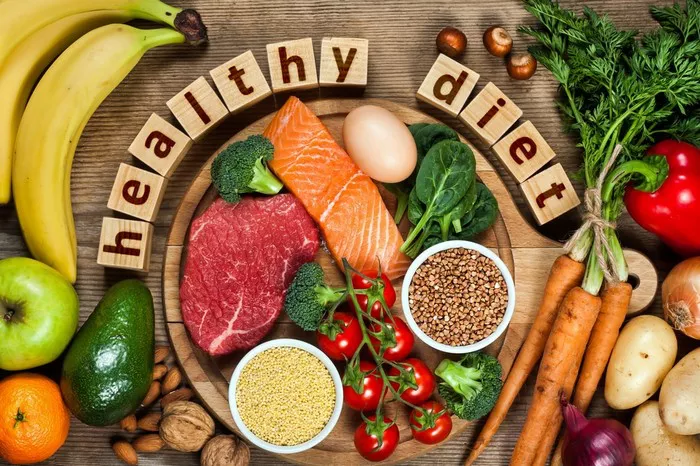Breakfast is often called the most important meal of the day, and what better way to start the day than with a nutritious bowl of cereal? However, not all cereals are created equal. Some are loaded with sugar, artificial ingredients, and low in essential nutrients, while others are packed with fiber, vitamins, and minerals. Knowing which cereals are healthy can help you make better choices for your diet. In this article, we will explore the most nutritious cereals to include in your breakfast routine and why they’re good for your health.
Why Is a Healthy Breakfast Important?
Breakfast replenishes your body’s energy stores and sets the tone for your eating habits throughout the day. Eating a well-balanced, healthy breakfast provides the following benefits:
Energy boost: After an overnight fast, your body needs fuel to get going, and a nutrient-rich breakfast can give you the energy needed to tackle your day.
Improved concentration: A good breakfast helps you stay focused and alert, particularly in the morning.
Better weight management: Studies have shown that people who eat breakfast tend to have better control over their appetite, which can help with maintaining a healthy weight.
Since cereal is a quick, easy, and popular breakfast option, choosing healthy cereals can significantly improve the quality of your first meal.
SEE ALSO: What Protein Diet Is Good for Weight Loss?
What Makes a Cereal Healthy?
A cereal can be considered healthy if it contains:
Whole grains: These are less processed than refined grains and contain more fiber, vitamins, and minerals. Look for cereals made with oats, barley, quinoa, or whole wheat.
High fiber content: Fiber keeps you full longer and supports healthy digestion. Aim for cereals with at least 3-5 grams of fiber per serving.
Low sugar: Many cereals are packed with added sugars, which can lead to weight gain, cavities, and other health issues. Opt for cereals with less than 6 grams of sugar per serving.
Protein: Protein helps with muscle repair and keeps you full for longer. Choosing cereals with a good protein content (around 5-8 grams per serving) can be beneficial.
Essential vitamins and minerals: Nutrients like iron, calcium, and B vitamins are commonly found in fortified cereals, which can help fill gaps in your diet.
Top Healthy Cereals for Breakfast
Let’s dive into some of the healthiest cereals that you can enjoy for breakfast. These cereals are low in sugar, high in fiber, and packed with nutrients.
Oatmeal
Oatmeal is one of the healthiest cereals you can eat. It is made from whole oats, which are packed with fiber, particularly a type called beta-glucan that helps lower cholesterol levels.
High in fiber: Oatmeal provides around 4 grams of fiber per cup, helping to promote digestive health and keep you full.
Heart-healthy: The soluble fiber in oats has been shown to reduce bad cholesterol (LDL) levels, making it good for your heart.
Low in sugar: Plain oatmeal has no added sugar, so you can control how sweet you want to make it by adding natural sweeteners like fruits or honey.
For a nutritious breakfast, choose plain oatmeal (not instant varieties, which are often loaded with sugars and preservatives) and add fruits, nuts, or seeds for extra flavor and nutrients.
Muesli
Muesli is a type of cereal that typically contains raw oats, grains, nuts, seeds, and dried fruits. It is usually served with milk or yogurt and can be eaten hot or cold.
High in fiber: Muesli contains a variety of whole grains, which provide a significant amount of dietary fiber.
Low in sugar: When buying muesli, look for varieties with little to no added sugar. The natural sweetness from dried fruits like raisins and apricots is often enough.
Rich in nutrients: Muesli contains healthy fats, protein, and a range of vitamins and minerals from its mix of nuts, seeds, and grains.
Muesli is a great choice for those who want a crunchy, nutritious breakfast. You can even make your own at home by combining rolled oats, chopped nuts, seeds, and dried fruits.
Shredded Wheat
Shredded wheat is a simple, whole-grain cereal made from just one ingredient: wheat. It is usually low in sugar and high in fiber, making it an excellent choice for breakfast.
Whole grain: Shredded wheat is made from whole wheat, which means it retains all the grain’s fiber and nutrients.
High in fiber: With about 6 grams of fiber per serving, shredded wheat supports healthy digestion and helps to keep you full throughout the morning.
No added sugar: Many shredded wheat cereals are free from added sugars, making them a clean and healthy breakfast option.
Pair shredded wheat with fresh fruit like berries or a banana for added flavor and nutrients.
Bran Flakes
Bran flakes are made from wheat bran, a great source of fiber. These flakes are known for being heart-healthy and filling.
Excellent source of fiber: Bran flakes provide around 7 grams of fiber per serving, promoting good digestion and helping to prevent constipation.
Low in sugar: While some bran flakes can be sweetened, look for varieties that have minimal added sugar to keep your breakfast as healthy as possible.
Rich in iron: Bran flakes are often fortified with iron, a mineral that many people, especially women, may not get enough of.
Add a handful of nuts or seeds to your bran flakes for a balanced breakfast with added healthy fats and protein.
Steel-Cut Oats
Steel-cut oats are less processed than rolled oats, which means they have a denser texture and take longer to cook. However, they offer excellent health benefits.
High in fiber: Steel-cut oats provide 4-5 grams of fiber per serving, supporting digestive health.
Low glycemic index: This means steel-cut oats cause a slower rise in blood sugar levels, making them a good option for people with diabetes or those looking to maintain stable energy levels.
Nutrient-dense: Like other whole oats, steel-cut oats are rich in B vitamins, iron, magnesium, and antioxidants.
While they take a bit longer to cook, you can prepare steel-cut oats ahead of time for a quick, reheatable breakfast throughout the week.
Cereals to Avoid for a Healthier Breakfast
Not all cereals marketed as “healthy” are as good for you as they seem. Here are some types of cereals to be cautious about:
Sugary Cereals
Many popular cereals are loaded with added sugars, which can cause spikes in blood sugar levels, leading to energy crashes later in the day. These cereals are often marketed to children and contain little nutritional value.
Refined Grains
Cereals made from refined grains, like white rice or corn, often have their fiber stripped away during processing. This reduces the nutritional content, and they may not keep you full for long.
Low Fiber
Some cereals may be low in fiber, even if they are marketed as whole grain. Fiber is essential for digestive health and satiety, so choosing cereals with higher fiber content is crucial for a healthy diet.
How to Choose the Healthiest Cereal for You
When shopping for healthy cereals, here are some tips to help you make the best choice:
Read the label: Look for cereals that list whole grains as the first ingredient, have at least 3 grams of fiber, and contain less than 6 grams of sugar per serving.
Check the serving size: Many cereal boxes list nutrition information based on a small serving size. Make sure you adjust the serving size to what you actually eat.
Avoid artificial ingredients: Opt for cereals with natural ingredients and no artificial colors, flavors, or preservatives.
Conclusion
Choosing a healthy cereal for breakfast can set the stage for a balanced diet and provide the nutrients you need to start your day. Oatmeal, muesli, shredded wheat, bran flakes, and steel-cut oats are some of the best options for a nutritious breakfast. They are high in fiber, low in sugar, and rich in essential vitamins and minerals.
By selecting whole-grain, low-sugar cereals and pairing them with nutritious toppings like fresh fruits, nuts, and seeds, you can enjoy a wholesome breakfast that will keep you energized and satisfied. Always check labels and ingredients to make informed choices for your health and well-being.
Related topics:



























